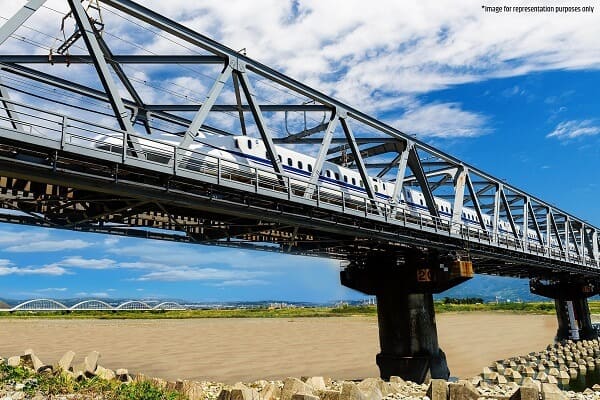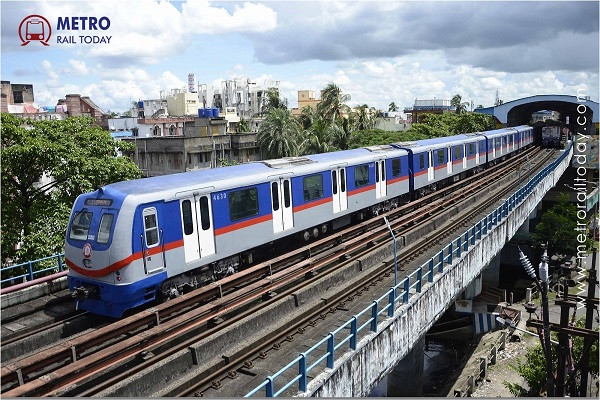 RVNL floats ₹900.75 Crore Tender for Kolkata Metro Rakes, Traction and CBTC Integration
RVNL floats ₹900.75 Crore Tender for Kolkata Metro Rakes, Traction and CBTC Integration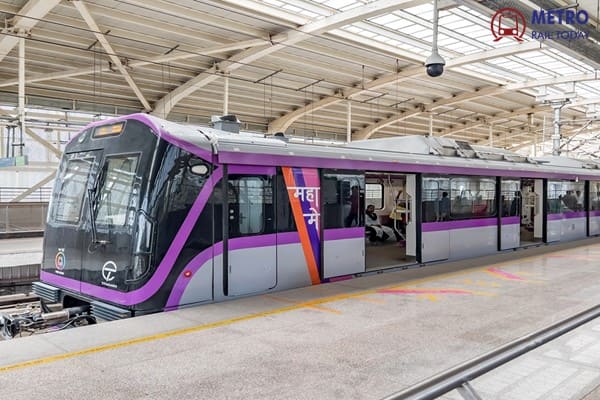 Govt. of India approves ₹2,954 crore Swargate–Katraj Pune Metro Extension Project
Govt. of India approves ₹2,954 crore Swargate–Katraj Pune Metro Extension Project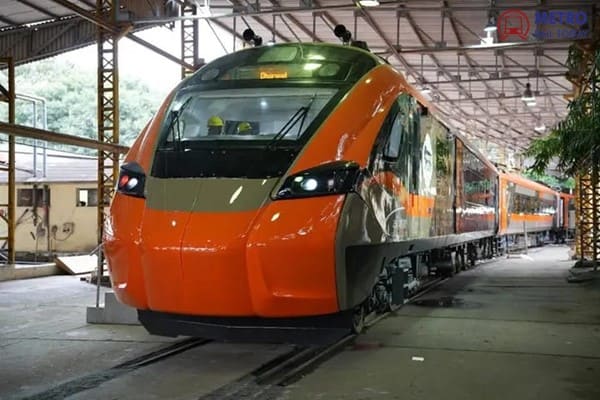 Vande Bharat Sleeper Rake faces delay, Indian Railways to hold back Prototype used in trial
Vande Bharat Sleeper Rake faces delay, Indian Railways to hold back Prototype used in trial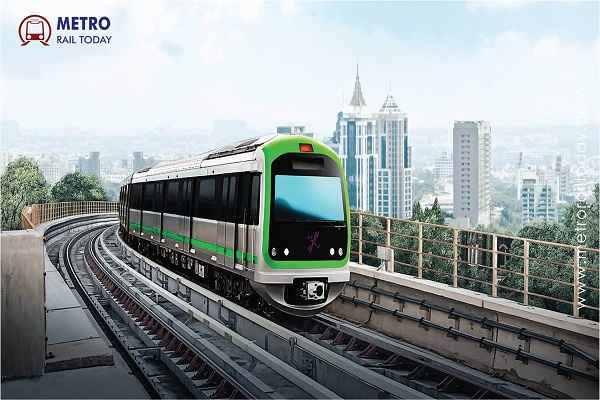 Karnataka approves ₹9,700 Cr Double-Decker Corridor for Bangalore Metro Phase 3
Karnataka approves ₹9,700 Cr Double-Decker Corridor for Bangalore Metro Phase 3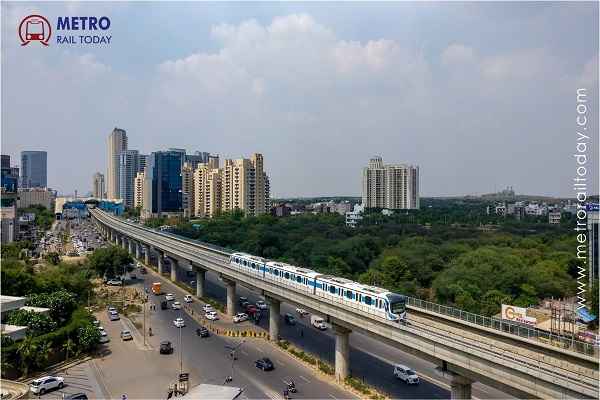 Construction work begins on ₹5,452 Crore Gurugram Metro Extension Project
Construction work begins on ₹5,452 Crore Gurugram Metro Extension Project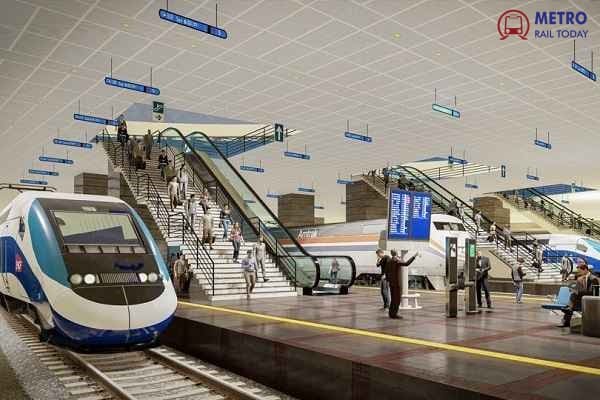 RVNL and Texmaco form Joint Venture to build India’s Next-Generation Railway Ecosystem
RVNL and Texmaco form Joint Venture to build India’s Next-Generation Railway Ecosystem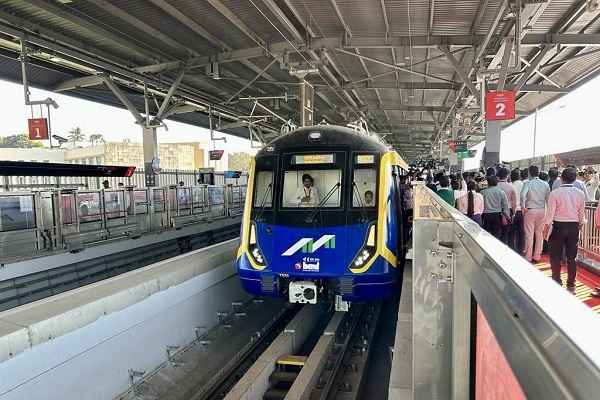 Maharashtra approves ₹47,000 Cr infra boost with two new Metro Corridors in Mumbai & Thane
Maharashtra approves ₹47,000 Cr infra boost with two new Metro Corridors in Mumbai & Thane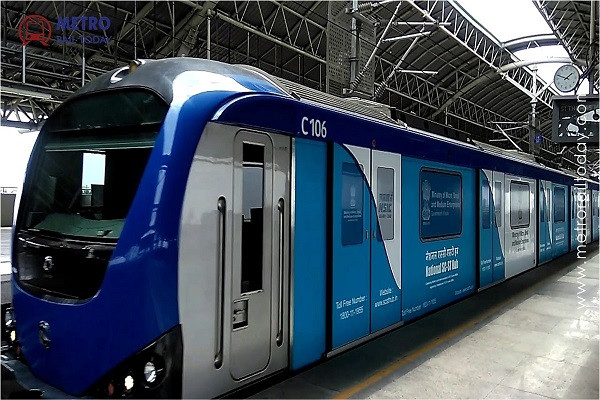 Tamil Nadu Govt Approves Chennai Metro’s ₹9,335 Crore Airport–Kilambakkam Corridor
Tamil Nadu Govt Approves Chennai Metro’s ₹9,335 Crore Airport–Kilambakkam Corridor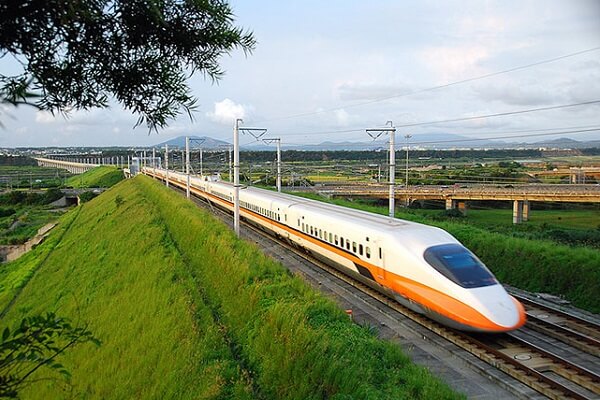 Survey ordered for new Bullet Train Corridor connecting Hyderabad, Chennai, Bengaluru & Amaravati
Survey ordered for new Bullet Train Corridor connecting Hyderabad, Chennai, Bengaluru & Amaravati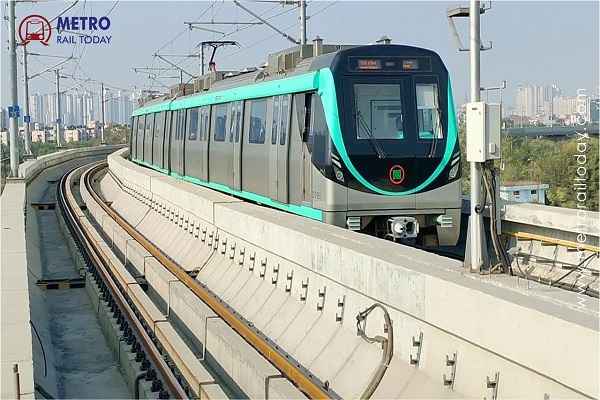 NMRC confirms 11 new Stations on Noida Metro Extension from Sector 61 to Knowledge Park V
NMRC confirms 11 new Stations on Noida Metro Extension from Sector 61 to Knowledge Park V
How is land acquisition delay affecting Mumbai-Ahmedabad Bullet Train project in India?
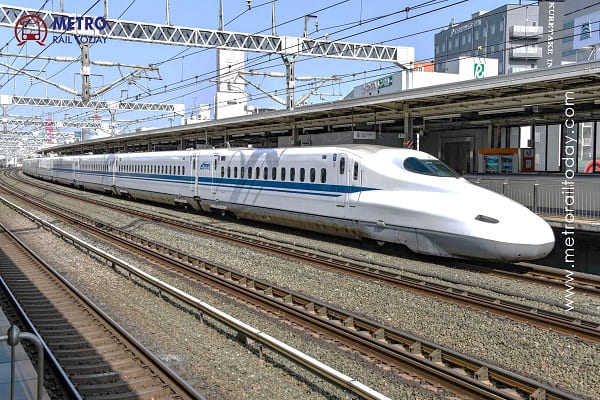
The Mumbai-Ahmedabad bullet train project, a symbol of modernization and progress in India's transportation sector, has garnered attention not only for its potential to revolutionize travel but also for the challenges it faces in the realm of land acquisition. This article delves into the intricate landscape of land acquisition delay and its profound impact on the ambitious Mumbai-Ahmedabad bullet train initiative.
A Vision of High-Speed Connectivity
The Mumbai-Ahmedabad bullet train project stands as a testament to India's commitment to embracing cutting-edge transportation solutions. Envisioned as a high-speed rail network connecting two prominent cities, this endeavor promises reduced travel times, enhanced connectivity, and a boost to economic growth. The project's significance is underscored by its potential to transform the way people move between these two bustling metropolises.
The Crucial Role of Land Acquisition
Land acquisition forms the cornerstone of any large-scale infrastructure development, and the bullet train project is no exception. The seamless operation of the high-speed rail system necessitates the acquisition of substantial tracts of land to lay down tracks, construct stations, and establish support facilities. However, this essential step has encountered challenges that have led to delays in the project's timeline.
Unveiling the Challenges
Resettlement and Rehabilitation: One of the primary challenges is the displacement of communities residing along the proposed route. Resettlement and rehabilitation efforts are imperative to ensure that affected individuals are treated fairly and provided with viable alternatives. The process demands meticulous planning and a sensitive approach to prevent social unrest.
Legal and Regulatory Complexities: Navigating the intricate legal and regulatory framework governing land acquisition presents a significant hurdle. Varied land ownership patterns, differing property rights, and complex zoning laws require a deep understanding to avoid potential legal obstacles.
Public Perception and Opposition: Gaining public support is vital for the success of such transformative projects. Addressing concerns related to environmental impact, noise pollution, and aesthetic changes necessitates effective communication and community engagement strategies.
Negotiations and Compensation: Negotiating with landowners is a delicate process that involves striking a balance between fair compensation and fiscal responsibility. Transparent negotiations, clear communication, and innovative compensation models are essential to overcome this challenge.
Solutions for Progress
Engaging Stakeholders: Establishing transparent channels of communication with affected communities and stakeholders fosters trust. Regular town hall meetings, public consultations, and comprehensive information dissemination can address concerns and garner support.
Adaptation in Planning: Flexibility in project design and alignment can help mitigate land acquisition challenges. Employing advanced surveying technologies and exploring alternative routes can minimize disruptions to existing settlements.
Innovative Compensation: Going beyond monetary compensation, offering skill development programs, employment opportunities, and localized infrastructure improvements can leave a positive and lasting impact on affected areas.
Conflict Resolution Mechanisms: Implementing impartial mediation mechanisms can expedite conflict resolution between landowners and project authorities, reducing the likelihood of protracted legal battles.
Looking Ahead: A Path to Progress
The delays stemming from land acquisition challenges have highlighted the complexities inherent in large-scale infrastructure projects. Nevertheless, the Mumbai-Ahmedabad bullet train project's vision remains steadfast. By addressing these challenges head-on and embracing innovative solutions, India can pave the way for a successful and transformative high-speed rail network.
The Mumbai-Ahmedabad bullet train project is more than just a transportation endeavor; it's a representation of India's aspirations and commitment to progress. As the nation works diligently to overcome land acquisition hurdles, the promise of a seamless and efficient bullet train network draws ever closer.
Success lies not only in the swiftness of the trains but also in our ability to navigate and triumph over the challenges that come our way. The Mumbai-Ahmedabad bullet train project embodies the spirit of innovation and determination that drives India forward on the path to a brighter and faster future.
Project Summary
- Project Name: Mumbai-Ahmedabad High Speed Rail Corridor (MAHSR)
- Terfminal Stations: Sabarmati (Gugarat), BKC Mumbai (Maharashtra)
- Total Stations: 12
- System Length: 508.17 km
- Land Required: 825 Hectares
- Project Cost: Rs 1.10 Lakh Crore
- Deadline: August 2027 (Original Deadline: December 2023)





